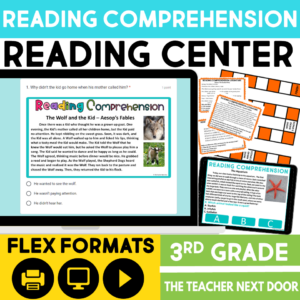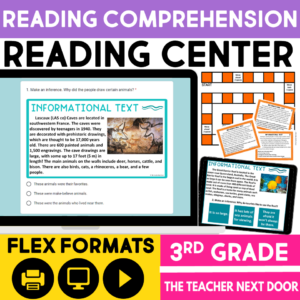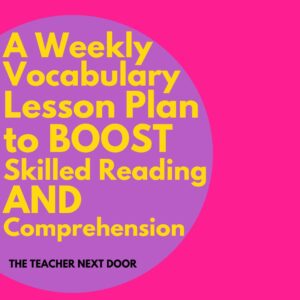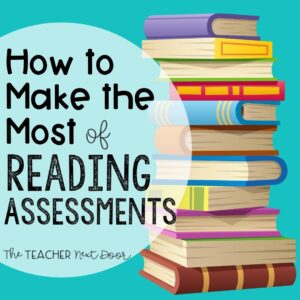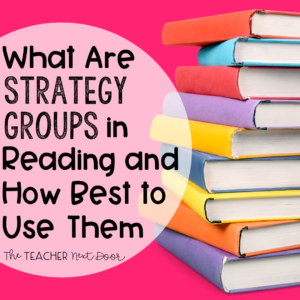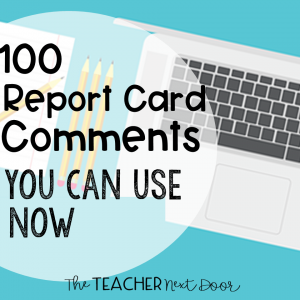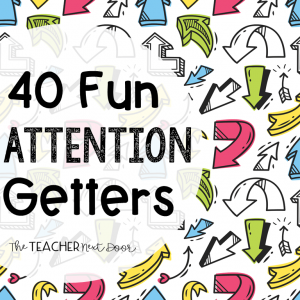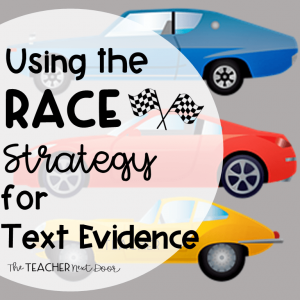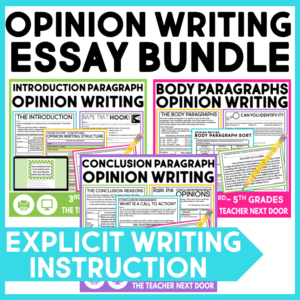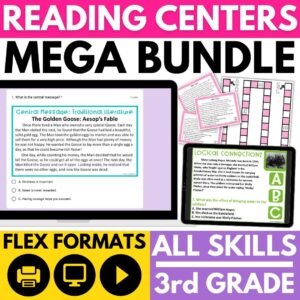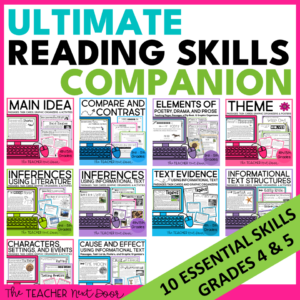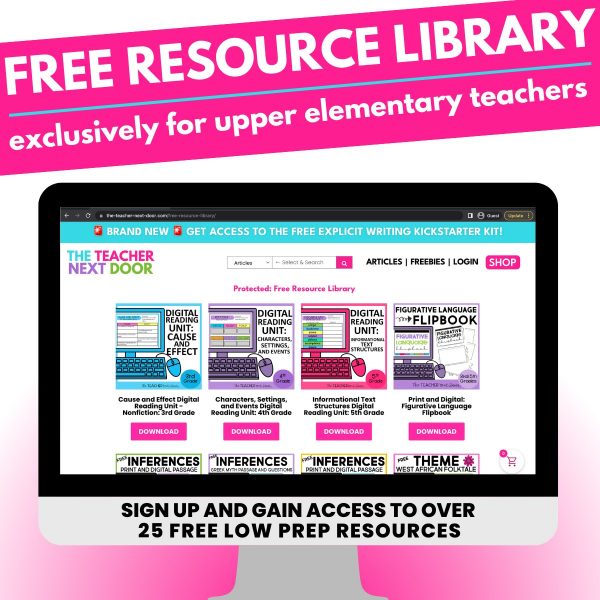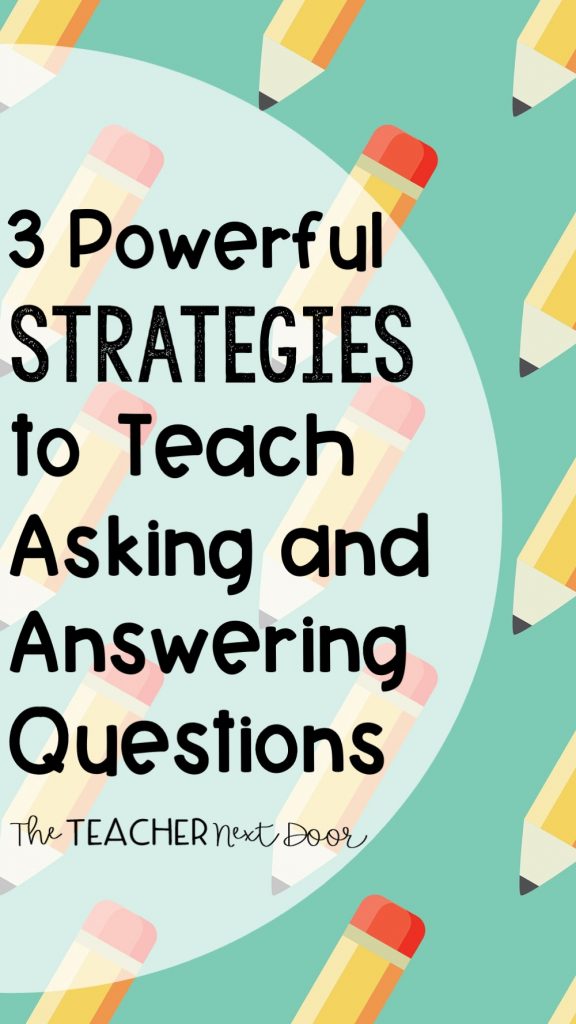
Asking and answering questions come naturally to kids!
Asking and answering TEXT DEPENDENT questions that can be answered with text evidence or through inference? Welllllllll…not so much.
This is one of the most essential reading strategies! It is vital for students to master asking and answering questions because simply put, it’s what good readers do!
Fluent, engaged readers ask and answer questions about the text before, during, and after reading. Being able to use this strategy is an important sign of comprehension.
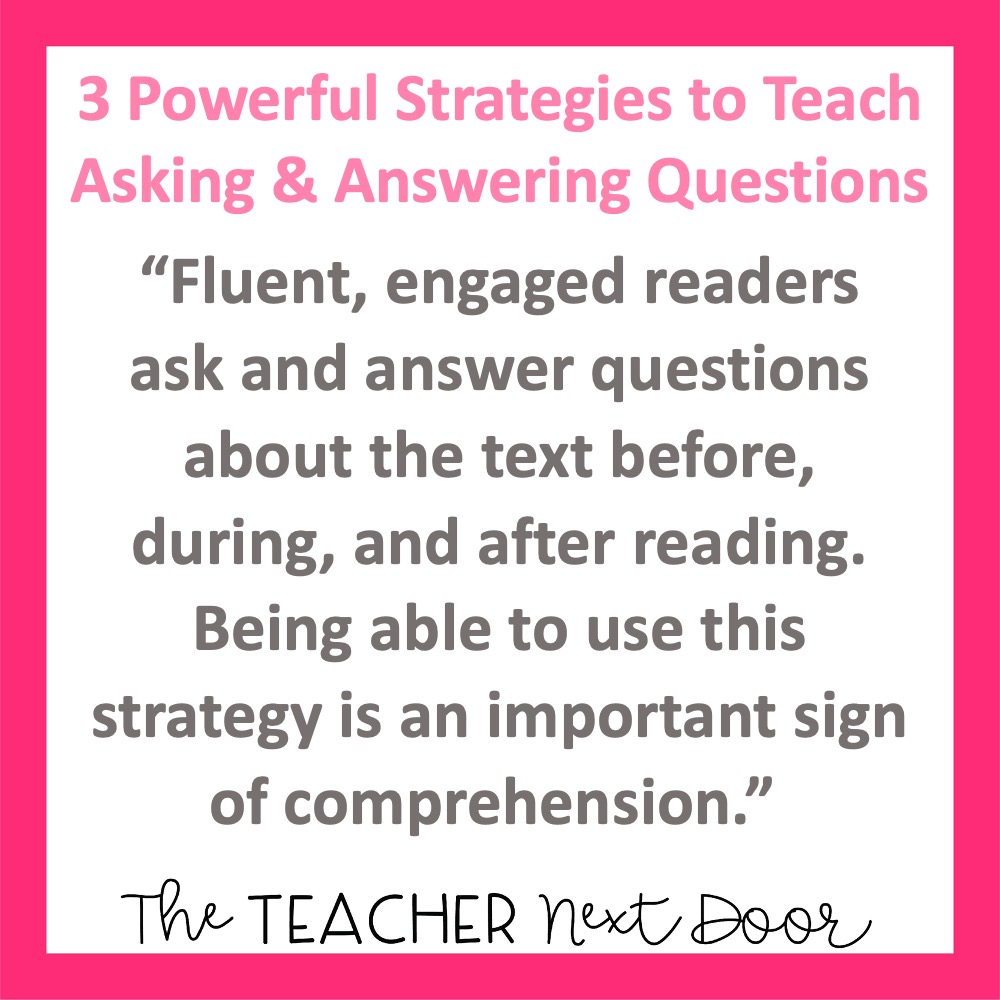
When kids question as they read, it shows that they are thinking deeply about the text. Kids are naturally wired to ask lots of questions, but the text-dependent and critical analysis aspect can be tricky.
Students will need explicit instruction on how to form questions that are text-based, meaningful, and relevant. Finding answers supported by analysis and text evidence will also need focused instruction.
Below you will find my three go-to strategies for teaching asking and answering questions in literature!
Model, model, model!
First things first, (and this may be a bit of a no-brainer), but you’ve got to model using this strategy. Students need to see how YOU do it so that they can understand what this strategy looks like in action.
Modeling this skill is pretty simple- you just need a piece of literature to read aloud and a whiteboard or chart paper to record your questions. Make sure to share your thinking out loud as you read, before, during, and after the story.
Another crucial element is providing examples of text-dependent questions, and asking kids to provide answers that are supported by text evidence. As mentioned above, this doesn’t always come naturally to kids, so it’s good to show them exactly what kinds of questions you are looking for.
Check out this digital comprehension game if you are looking for a quick way to practice answering text-dependent questions with your students. It includes tons of practice, in both print and digital versions. This resource is perfect for independent work or centers.
Reteach and revisit…all year long!
My second tip for teaching this strategy is to come back to this skill again and again throughout the year. It is definitely not a “one-and-done” skill. To really master asking and answering relevant, text-based questions, students will need a ton of practice.
Since questioning is one of the main reading skills, it’s a great idea to cover it in depth towards the beginning of the year, and then circle back regularly. Each time you come back to it students will have a chance to deepen their skills.
Create Frequent Opportunities for ‘Minds-On’ Activities
The last tip is to provide practice, practice, practice! Kids need to try using this strategy over and over and over, with all different types of texts.
Students should have the opportunity to practice this strategy with fables, modern fiction, folktales, poetry, drama, and mythology. Use a mixture of short and long passages, and a good mix of question types.
As you go through each different reading unit, students will need to be consistently challenged. A great place to do this is within your guided reading or small groups. Even if you’re working on a different skill, be sure to model asking and answering questions from the text throughout your session together.
More to Consider
Another thing to mention when you talk about asking and answering questions with students is that not all questions are created equal.
Some questions are surface-level and can be answered without too much thought. Others are deep questions and require students to really dig down into the text.
Explicit questions have answers that can be found directly stated in the text. Implicit questions are those whose answers have to be inferred based on what the text says.
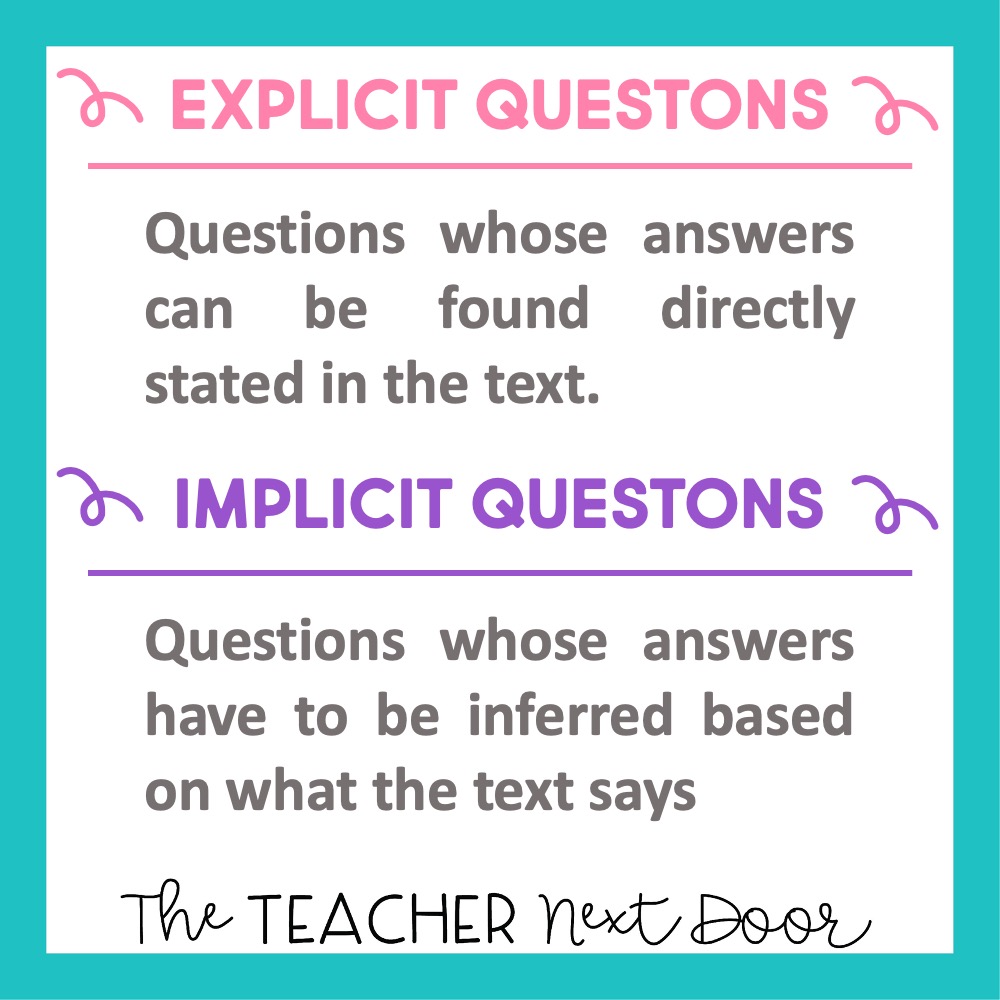
When you begin to ask implicit questions, you’ll likely notice this is where you lose your struggling readers. Many struggling readers on the cusp of becoming proficient readers can perform quite well with explicit questions. So much so you may even think they’re stronger readers than they actually are. Thus, not providing them with that important small group instruction that they so desperately need.
Be sure to provide enough practice with both types of questions to ensure you have a firm understanding of where each of your students is performing.
Remember, no one type of question is better or more important than another, but using a wide variety of question types shows full engagement with the text.
Assessment
One last note, about the assessment of this strategy. You really have to assess this skill through observation, over a long period of time.
To get a good idea of what a student can do, it’s best to observe them one on one or in a small group. You can do this during reading workshop, at center time, or while the rest of the class is working on something independently.
Resources
If you are looking for some extra practice with asking and answering questions, check out the two resources below:
Questions from the Story digital practice can be used with Google Slides or PowerPoint. It includes two high-interest passages, both with text-dependent questions in several different formats.
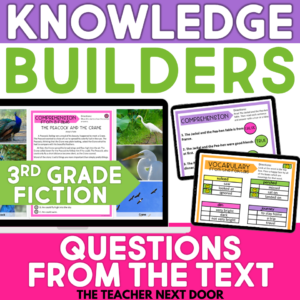
This Reading Comprehension Using Literature game includes 32 printable task cards, a printable game board, and a recording sheet. If you prefer a no-prep activity, this game can also be used digitally!
Both of these activities are great for distance learning, centers, whole class, or independent work.

Looking to learn more? Check out similar posts below!
How to Teach Paired Texts in Five Days with a Free Reading Unit
Teaching Nonfiction Text Featured
Compare and Contrast Activities
Standards Alignment:
Common Core State Standard RL.3.1 (Ask and answer questions to demonstrate understanding of a text, referring explicitly to the text as the basis for the answers.)

